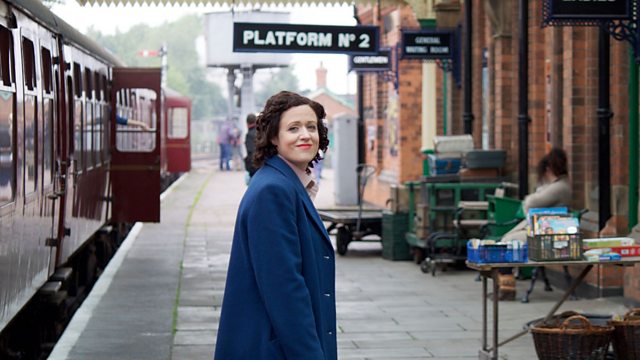
Capitalism and Commerce
Series about Britain's railways. Liz McIvor explores how railways stimulated great changes to the nation's economy, including how business was done.
The railways stimulated great changes to the nation's economy. They also changed the way we do business, encouraging a new generation of mechanical engineers, skilled workers, managers and accountants. Originally, local railway entrepreneurs viewed trains as vehicles for shifting raw materials, stock and goods. But soon they discovered there was money to be made in transporting people.
Places such as Derby became 'railway towns'. Derby was central to the new network and home to the engineers who made and maintained locomotives and carriages. But the railway boom of the 1840s also came with a 'bust'. A new age of middle-class shareholders who invested in the railways soon discovered what goes up can also go down.
Alongside this were stories of railway rogues and dodgy dealing. However, railway companies recovered from the crash and continued to develop as complex national business organisations - capable of building great structures such as the Ribblehead Viaduct in Yorkshire and St Pancras Station in London.
Last on
Clip
-
![]()
Preview: Capitalism and Commerce
Duration: 01:16
Credits
| Role | Contributor |
|---|---|
| Presenter | Liz McIvor |
| Producer | Stuart Woodman |
| Series Producer | Andy Richards |

